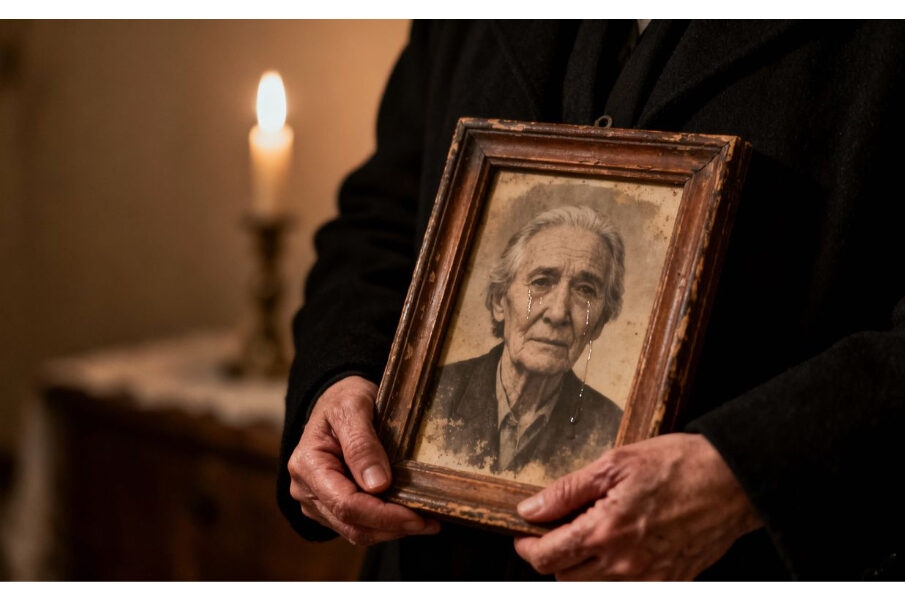
It can be tough to know if a loved one is experiencing neglect in a nursing home. Sometimes the signs are obvious, but other times they’re more subtle. Paying attention to the details is key. Recognizing these indicators early can make a significant difference.
Recognizing Physical Indicators of Abuse
Physical signs are often the most alarming. These aren’t just minor issues; they point to a lack of proper care. Look out for:
- Unexplained injuries: This includes bruises, cuts, burns, or even broken bones that don’t have a clear explanation from the staff. Sometimes these injuries might be attributed to falls, but repeated or severe injuries warrant closer inspection.
- Poor hygiene: A resident who consistently smells bad, has dirty clothes, or hasn’t had their hair or nails attended to might be suffering from neglect. This also extends to dental hygiene.
- Bedsores (pressure ulcers): These are serious wounds that develop from prolonged pressure on the skin, often in bedridden individuals. Advanced bedsores are a strong indicator that a resident isn’t being moved or cared for properly. You can find more information on nursing home neglect.
- Dehydration or malnutrition: Unexplained weight loss, dry lips, sunken eyes, or infrequent urination can signal that a resident isn’t receiving adequate food and fluids.
Observing Behavioral Changes in Residents
Sometimes, the signs of neglect aren’t physical but show up in how a resident acts. These changes can be hard to interpret, but they’re important to note.
- Increased fear or anxiety: If a resident seems unusually fearful, especially around certain staff members, or becomes withdrawn and anxious, it could be a sign of mistreatment.
- Depression or withdrawal: A resident who was once social and engaged but now seems sad, apathetic, or isolates themselves might be experiencing emotional distress due to neglect.
- Sudden confusion or agitation: While some confusion can be age-related, a sudden increase or unexplained agitation could be linked to unmet needs, such as pain or lack of medication.
- Verbalizing distress: Listen carefully if a resident makes comments about being mistreated, ignored, or not receiving proper care, even if they seem hesitant or embarrassed.
Understanding Environmental Hazards
The living environment itself can tell a story about the level of care provided. A facility that appears neglected often reflects a neglectful approach to resident care.
- Unsanitary conditions: Look for dirty floors, unkempt common areas, overflowing trash cans, and strong, unpleasant odors. These are not just unpleasant; they can be breeding grounds for infection.
- Lack of safety measures: Are there tripping hazards like cluttered walkways or unsecured rugs? Are call buttons within easy reach? A lack of attention to safety can lead to accidents.
- Inadequate staffing: While not always visible to visitors, if you notice staff members seem rushed, overwhelmed, or unavailable when needed, it can indicate understaffing, which directly impacts the quality of care residents receive. This can lead to delays in care and missed needs.
Establishing Legal Grounds for a Lawsuit
To pursue a nursing home neglect lawsuit, you first need to build a solid legal foundation. This means showing that the facility failed in its responsibilities and that this failure directly caused harm to a resident. It’s not enough to simply suspect neglect; specific legal elements must be proven. Successfully suing a hospital for negligence demands thorough evidence gathering, expert medical opinions, and careful case planning. These cases are intricate and require a strategic approach to navigate the legal and medical complexities involved. This involves several key components.
Proving Duty of Care Owed to the Resident
Every nursing home has a legal obligation, known as a duty of care, to provide a safe and healthy environment for its residents. This duty is established by law and by the contractual agreement between the resident (or their family) and the facility. It includes providing adequate food, water, medical attention, supervision, and maintaining sanitary living conditions. Essentially, the facility must act with the same level of care that a reasonably prudent nursing home would under similar circumstances. This duty extends to protecting residents from harm, whether from staff, other residents, or environmental hazards within the facility.
Demonstrating Breach of Duty
Once the duty of care is established, the next step is to show that the nursing home breached this duty. This means proving that the facility’s actions, or lack thereof, fell below the expected standard of care. Examples of a breach include:
- Failure to provide timely medical treatment for an injury or illness.
- Not adequately supervising residents, leading to falls or altercations.
- Allowing unsanitary living conditions that contribute to infections.
- Neglecting to administer medications as prescribed.
- Failing to properly feed or hydrate residents.
Proving nursing home negligence requires demonstrating that the facility breached its duty of care, and this breach directly resulted in harm to a resident. This involves establishing a clear link between the facility’s actions or inactions and the resulting injury or suffering.
Causation and Damages in Neglect Cases
Finally, you must demonstrate that the breach of duty caused the resident’s injuries or suffering. This is known as causation. It requires showing that the harm would not have occurred but for the nursing home’s negligence. For instance, if a resident developed bedsores because they were not turned regularly, the failure to turn them is the cause of the bedsores. Alongside causation, you must also prove that damages resulted from the neglect. Damages can include medical bills, pain and suffering, emotional distress, and in some cases, wrongful death. The extent of these damages will influence the potential value of the lawsuit.
The Process of Filing a Nursing Home Neglect Lawsuit
Filing a lawsuit for nursing home neglect can seem like a big hurdle, but it’s a necessary step for many families seeking justice. It’s not something you do on a whim; there’s a definite process involved. The first step is always about building a strong case. This means collecting all the information you can. Think of it like putting together a puzzle, where each piece of evidence helps paint a clearer picture of what happened.
Gathering Crucial Evidence for Your Case
When you suspect neglect, start documenting everything. This evidence is the backbone of your claim. What kind of things should you be looking for?
- Medical Records: These are vital. Get copies of your loved one’s charts, doctor’s notes, medication logs, and any incident reports from the facility. They can show a pattern of poor care or injuries.
- Photographs and Videos: If you see bedsores, unexplained bruises, or unsanitary conditions, take pictures or videos. Dates and times are important here.
- Witness Statements: Talk to staff members who might have seen something, other residents (if they are able to communicate clearly), or even visitors. Sometimes, a simple conversation can yield important details.
- Facility Records: This includes admission agreements, care plans, and any communication logs between the facility and the family.
Consulting with an Experienced Attorney
Once you have a good amount of information, it’s time to talk to a lawyer. You don’t want just any lawyer; you need someone who knows nursing home cases. They’ve seen these situations before and understand the specific laws that apply. They can tell you if you have a case and what your options are. It’s a good idea to meet with a few different attorneys before you decide. Ask them about their experience, how they handle cases, and what their fees are like. Choosing the right legal counsel is a significant decision.
Navigating the Legal Procedures
After you hire an attorney, they will handle the formal legal steps. This usually starts with sending a demand letter to the nursing home. If that doesn’t lead to a resolution, your attorney will file a lawsuit in court. This kicks off the litigation process, which can involve:
- Discovery: This is where both sides exchange information and evidence. It can include depositions (sworn testimony outside of court), interrogatories (written questions), and requests for documents.
- Negotiations/Mediation: Many cases are settled out of court through negotiation or mediation, where a neutral third party helps facilitate an agreement.
- Trial: If a settlement can’t be reached, the case will go to trial, where a judge or jury will decide the outcome.
Types of Damages Recoverable in Neglect Claims
When a nursing home resident suffers due to neglect, legal action can seek compensation for the harm caused. These damages aim to make the resident whole again, as much as possible, after experiencing substandard care. It’s important to understand what kinds of losses can be claimed.
Compensation for Medical Expenses
One of the most direct types of damages is reimbursement for medical costs. This includes bills for treatments needed because of the neglect. Think about:
- Hospital stays and emergency room visits.
- Doctor appointments and specialist consultations.
- Medications, both prescription and over-the-counter.
- Therapy, such as physical or occupational therapy.
- Medical equipment or assistive devices.
These expenses can add up quickly, and recovering them is a primary goal in many neglect lawsuits. The aim is to cover costs incurred both during the period of neglect and any future medical needs that arise directly from it. You can find more information about damages in nursing home abuse cases.
Addressing Pain and Suffering
Beyond tangible medical bills, neglect can inflict significant physical pain and emotional distress. These are often referred to as non-economic damages. Quantifying pain and suffering can be complex, but it acknowledges the real impact neglect has on a person’s quality of life. This can include compensation for:
- Physical discomfort and agony.
- Loss of enjoyment of life.
- Inability to perform daily activities.
- Permanent disability or disfigurement.
The law recognizes that a resident’s well-being is more than just their physical health; it includes their comfort and ability to live without constant pain.
Seeking Damages for Emotional Distress
Emotional distress is another significant category of damages. Neglect can lead to profound psychological harm, even if there are no visible physical injuries. Residents might experience:
- Anxiety and fear, especially if they feel unsafe.
- Depression and feelings of hopelessness.
- Sleep disturbances.
- Post-traumatic stress symptoms.
- Humiliation or loss of dignity.
Proving emotional distress often involves testimony from the resident, family members, and mental health professionals. It’s about acknowledging the psychological toll that neglect can take on an individual’s mental state and overall well-being.
Choosing the Right Legal Representation
Qualities of a Skilled Nursing Home Attorney
When pursuing a nursing home neglect lawsuit, selecting the right attorney is a big step. You want someone who really knows the ins and outs of these kinds of cases. Look for an attorney with a proven track record in elder abuse and neglect litigation. They should be familiar with the specific laws and regulations that apply to nursing homes in your state. It’s also important that they communicate well. A good attorney will explain the legal process clearly and keep you informed every step of the way.
Understanding Attorney Fees and Costs
Most attorneys who handle nursing home neglect cases work on a contingency fee basis. This means they don’t get paid unless you win your case. Their fee is then a percentage of the settlement or award you receive. This arrangement makes legal help accessible, as you won’t have to pay upfront legal fees. However, it’s important to discuss all potential costs, such as court filing fees or expert witness expenses, and how those are handled. Always get this agreement in writing.
The Importance of a Strong Attorney-Client Relationship
Building trust with your attorney is key. You’ll be sharing sensitive information about your loved one’s care and the neglect they experienced. A strong relationship means you feel comfortable and confident in your attorney’s ability to represent you. This partnership helps ensure that your case is handled with the care and attention it deserves. It’s about having a dedicated advocate who is committed to achieving the best possible outcome for your family.
Statutes of Limitations for Neglect Lawsuits
Understanding Time Limits for Filing Claims
When pursuing a nursing home neglect lawsuit, it’s important to know that there are strict deadlines for when you can file. These deadlines are called statutes of limitations. They exist to ensure that cases are brought forward while evidence is still fresh and memories are clear. Missing this deadline can mean losing your right to seek compensation entirely. Each state has its own set of rules regarding these time limits, so it’s not a one-size-fits-all situation. For instance, in Mississippi, you generally have three years from the date of the injury or incident to file a nursing home negligence lawsuit in Mississippi.
Exceptions and Tolling Provisions
While statutes of limitations are generally firm, there are sometimes exceptions. These are known as tolling provisions. They can pause or extend the time limit under specific circumstances. Some common reasons for tolling include:
- The victim being a minor at the time of the neglect.
- The victim being mentally incapacitated and unable to understand their rights.
- The nursing home actively concealing the neglect or fraud.
These exceptions are complex and vary by state. It’s vital to discuss your specific situation with an attorney to see if any apply.
The Consequences of Missing Deadlines
Failing to file a lawsuit within the prescribed statutory period usually results in the case being permanently dismissed. This means you would be barred from pursuing any legal action against the nursing home or responsible parties, regardless of how severe the neglect was or how strong your evidence might be. The court will not hear your case if it’s filed late. This is why prompt action and consultation with legal counsel are so important after discovering potential neglect.
Reference Websites
Essential Things to Know Before Hiring In-Home Care Services
January 23, 2026The Importance of Ergonomics in Everyday Life
December 30, 2025
Leave a reply Cancel reply
-
The Importance of Ergonomics in Everyday Life
December 30, 2025 -
5 Everyday Habits to Safeguard Your Hearing for a Lifetime
April 19, 2025 -
How Scents Can Spark Panic Before You Even Realize?
April 29, 2025






